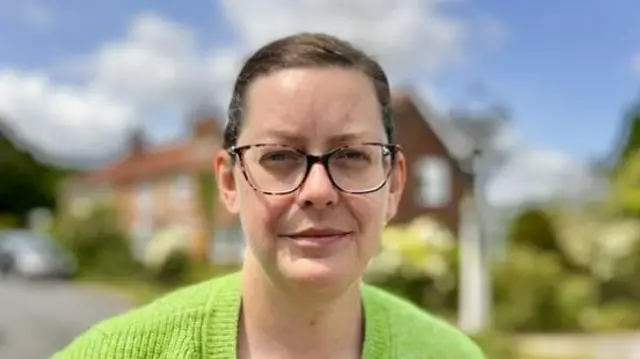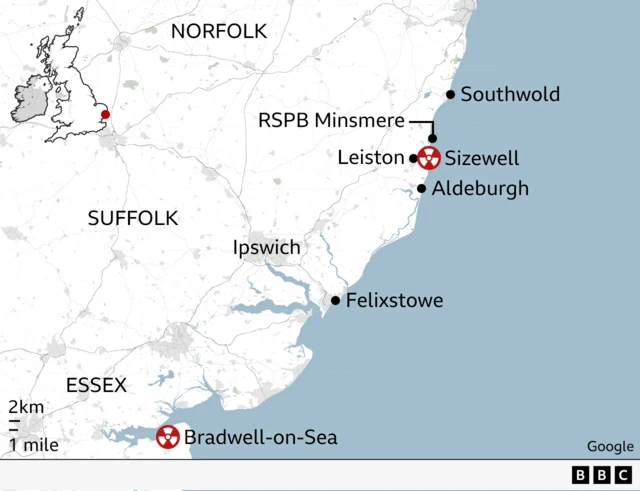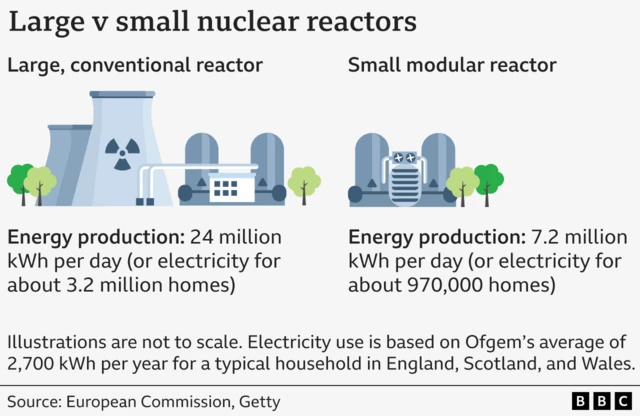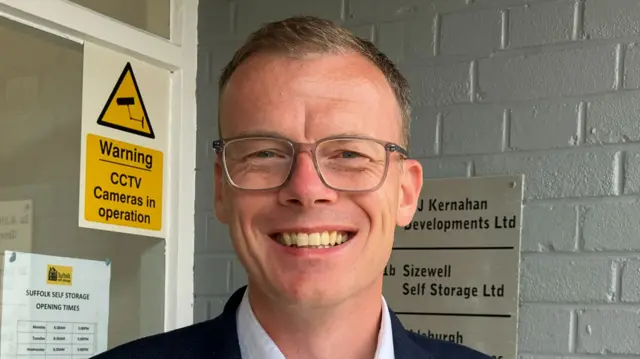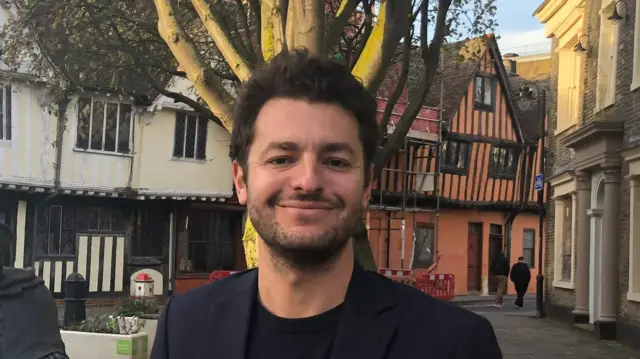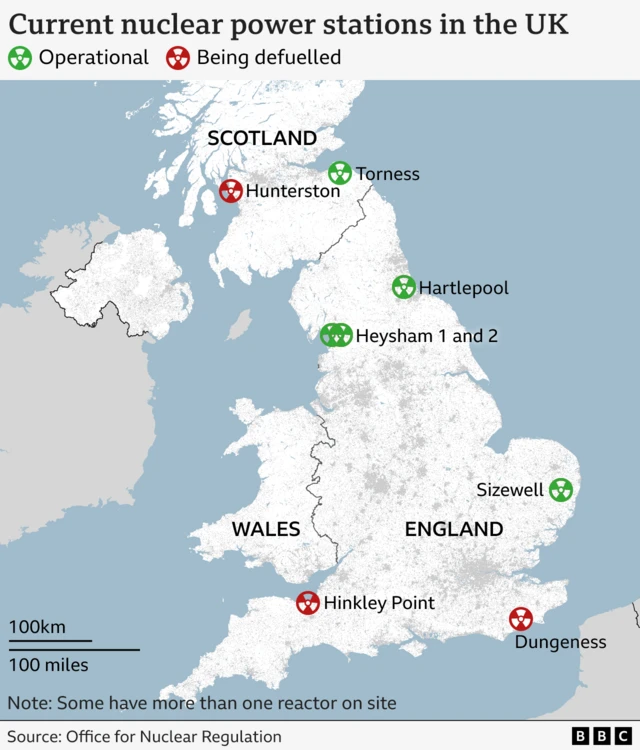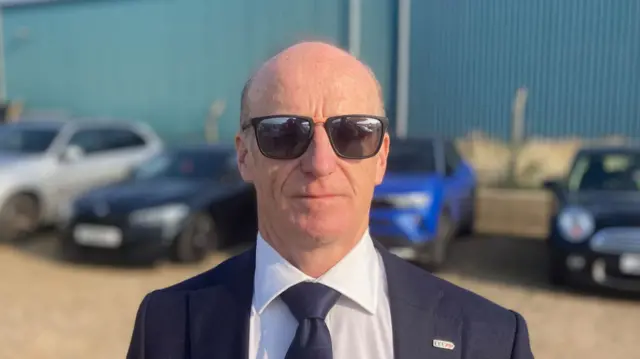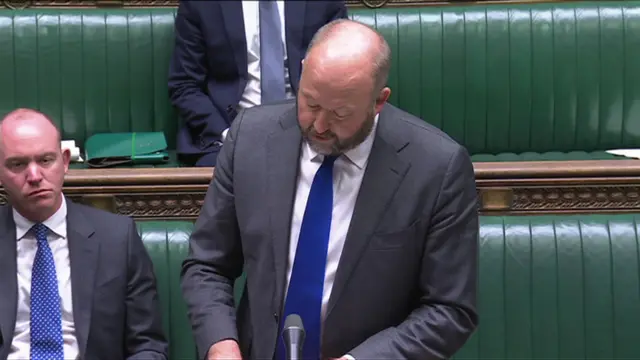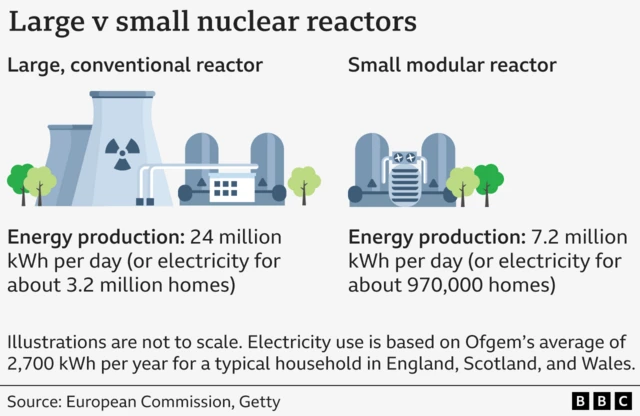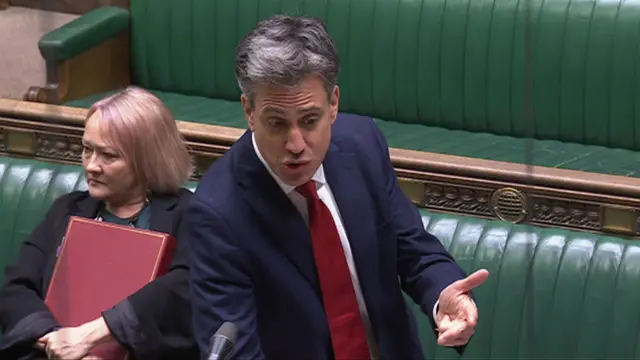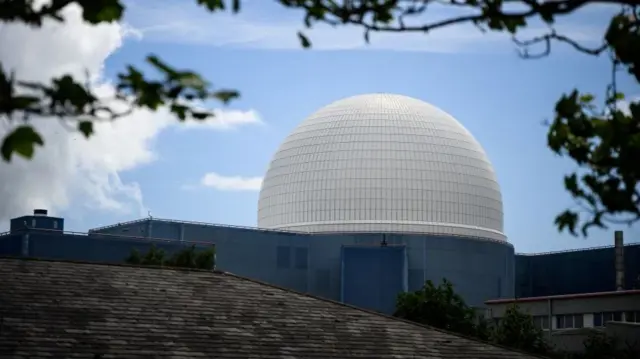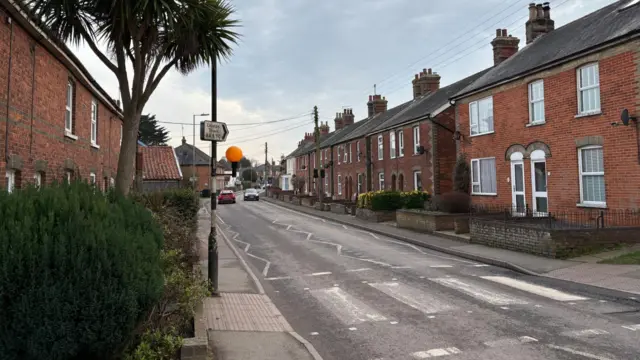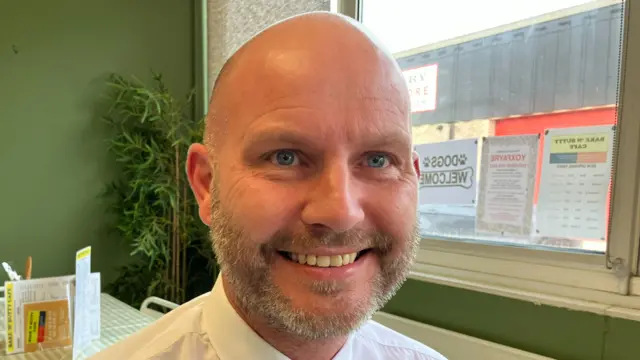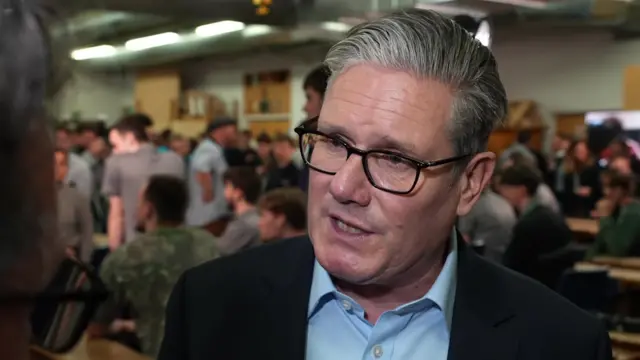Government allocates £14.2bn to nuclear plant, as Spending Review loomspublished at 14:42 BST 10 June
 Adam Goldsmith
Adam Goldsmith
Live reporter
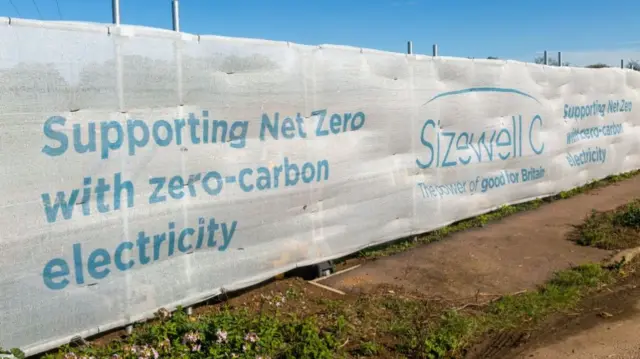 Image source, Getty Images
Image source, Getty ImagesA day before we hear Chancellor Rachel Reeves' much-anticipated Spending Review, the government has announced £14.2bn for a new nuclear power station.
The Sizewell C nuclear plant in Suffolk (on an existing nuclear site) is expected to start supplying power in the mid-2030s.
Reeves said the new plant would power six million homes, employ 10,000 people during construction, and support thousands more jobs across the UK.
Prime Minister Keir Starmer, though, warned that Sizewell would not be given "a blank cheque" - and today's funding only covers the next four years of what will be at least a decade-long construction.
We've heard the concerns of locals in Leiston around rising rent costs and the potential impact on their local environment. Others, though, welcome the investment.
And - while Sizewell C has taken the headlines - the government also announced £2.5bn for a small modular reactor programme. Our reporter Kate Stephens looks at where and when we might see them.
We're now bringing our live coverage to a close, but you can find key details in our news story, and our explainer on nuclear power is here. Thanks for reading.

